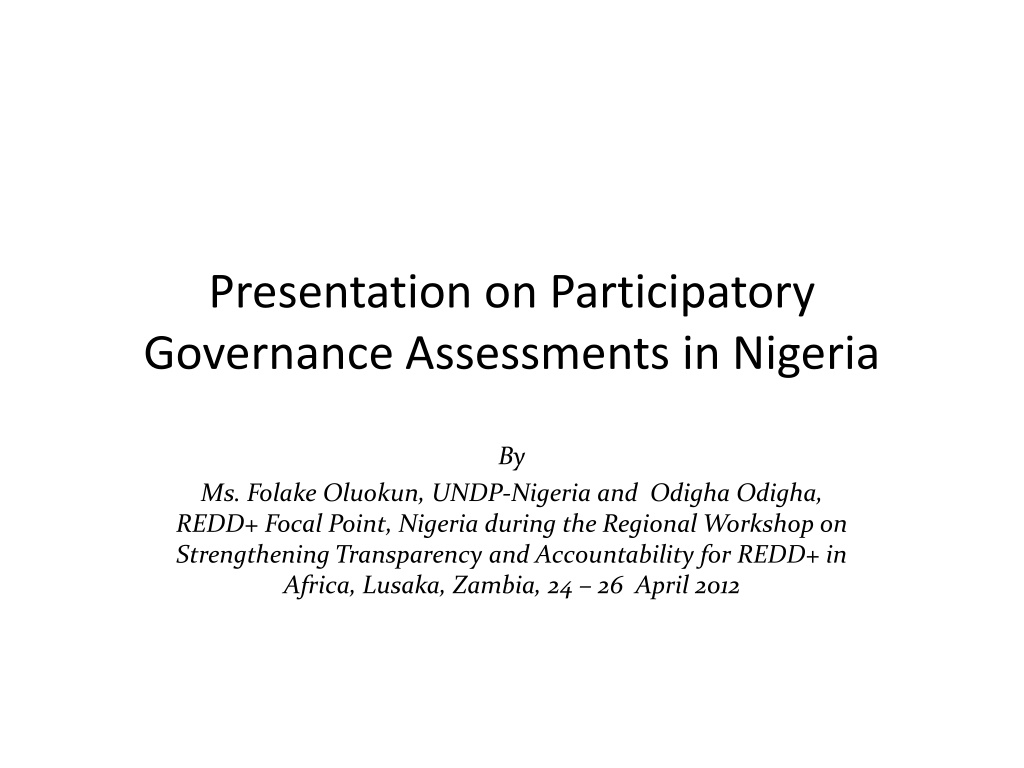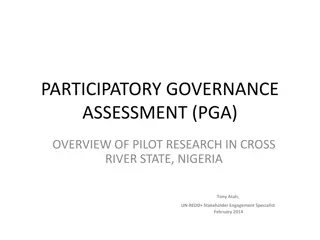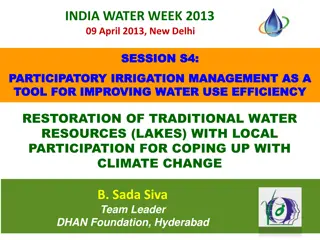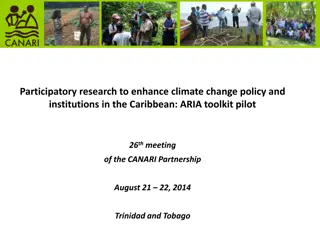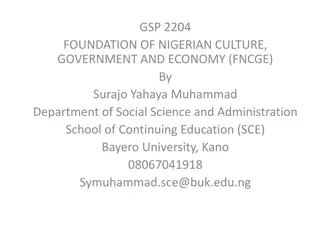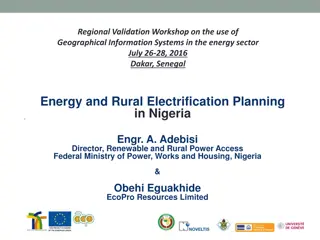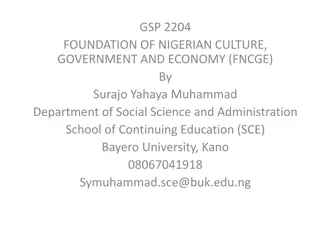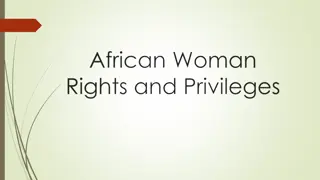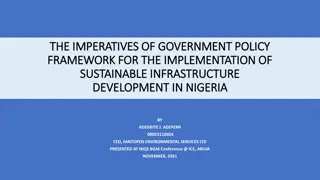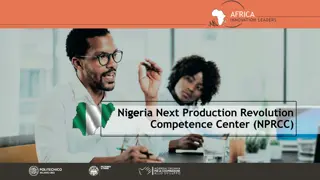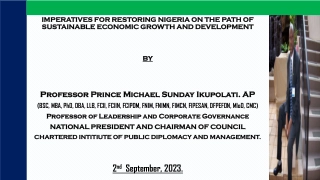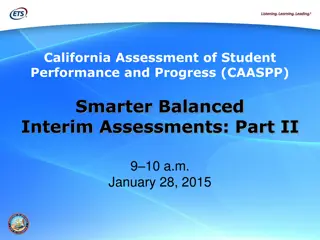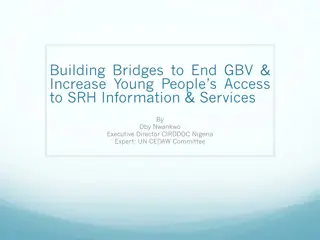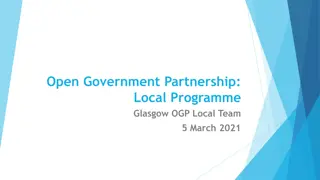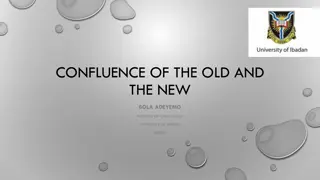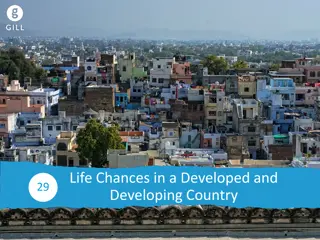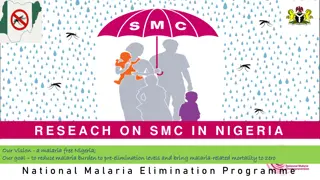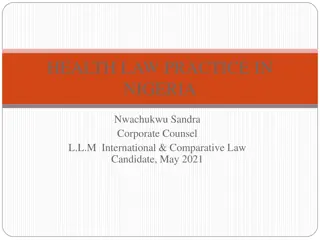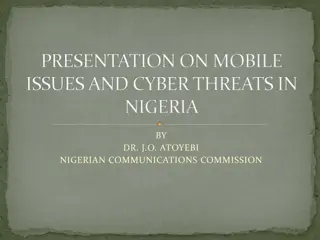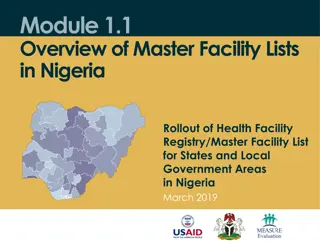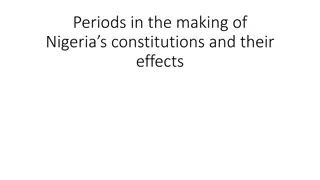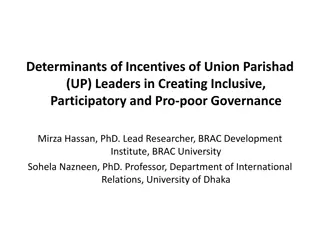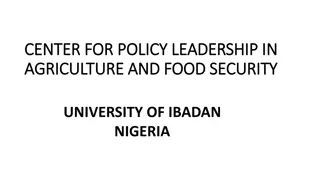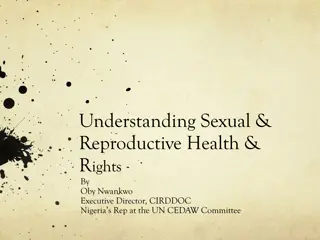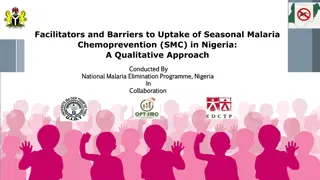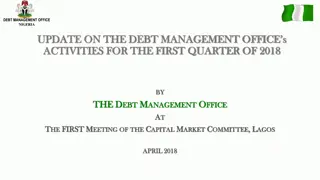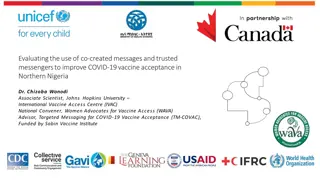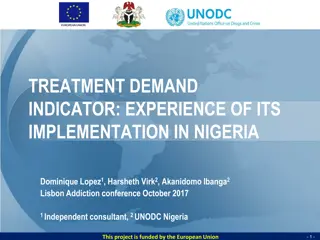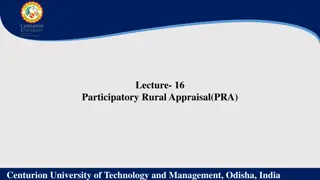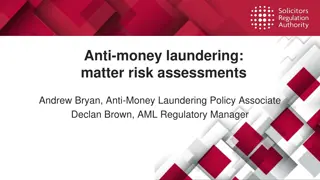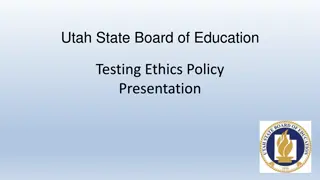Challenges and Opportunities in Participatory Governance Assessments in Nigeria
Nigeria faces challenges in governance such as corruption, weak institutions, and environmental degradation. The presentation highlights ongoing assessments to enhance governance in urban areas and combat corruption in key sectors. Recommendations include strengthening systems, addressing corruption risks, and promoting community participation for the successful implementation of initiatives like REDD+.
Download Presentation

Please find below an Image/Link to download the presentation.
The content on the website is provided AS IS for your information and personal use only. It may not be sold, licensed, or shared on other websites without obtaining consent from the author. Download presentation by click this link. If you encounter any issues during the download, it is possible that the publisher has removed the file from their server.
E N D
Presentation Transcript
Presentation on Participatory Governance Assessments in Nigeria By Ms. Folake Oluokun, UNDP-Nigeria and Odigha Odigha, REDD+ Focal Point, Nigeria during the Regional Workshop on Strengthening Transparency and Accountability for REDD+ in Africa, Lusaka, Zambia, 24 26 April 2012
Context Federation of 36 States + FCT Estimated Population: 167 million Land area: 923,769km2 (76% arable) 6thlargest deposit of gas, 8th largest producer of petroleum in the world.
In spite of immense resources... Human Development Index (HDI 2011) - 0.459 ranks 156 out of 187 countries Poverty level 54.4 % (2004), 69% (2010), growing level of unemployment from 12.3% in 2006 to 23.9% in 2011 Poverty is a main driver of deforestation and environmental degradation Corruption as a key driver of deforestation Transparency International s CPI Rankings: 130th (2009), 134th (2010), 143 (2011) Corruption in Nigeria is an endemic, pervasive and systemic problem.
Challenges Wavering political will at national level to combat corruption, varying levels at State level. Insufficient involvement of ordinary citizens in the fight against corruption Weak institutions to cope with forest law enforcement Irregular practices in natural resource management responsible for massive degradation of Nigeria s environment. Inexistent/weak systems and institutional frameworks to reduce corruption and increase transparency and accountability. Will affect the utilization of National resources as well as potential benefits from REDD
Ongoing Participatory Governance Assessments 1. Assessment of Good Urban Governance in Nigeria: Objective: Enhance the capacity of local governments and other stakeholders for good governance and increased accountability. 2. Corruption Risk Assessments in the water, health and education sectors at Federal level and in Selected States: Objective: Identify and proffer recommendations to address vulnerable areas in the pilot sectors that are prone to corruption - anti-corruption agencies, Ministries, Departments and Agencies (MDAs), CSOs. Tools, approaches, methodologies are relevant and beneficial to REDD+
Other interventions that can benefit the REDD initiative... Identifying and addressing corruption risks at State level (including to ensure effective utilisation of REDD benefits). Strengthened public procurement systems at National and State levels National, State strategies to combat corruption Increasing community participation in the management of resources at all levels (awareness creation, fighting corruption, participatory budgeting, increased participation in electoral processes etc).
REDD+ in Nigeria By Law, forest resource management is a function of the State government . Different states are on different levels as far as forest management is concerned. Cross River State hosts more than 50% of Nigeria s remaining rain forest and mangrove and there is overwhelming political will to protect them. This has informed the two track approach which makes Cross River State the model for implementation of the REDD for other States.
Key Benefits of Participatory Assessments for REDD+ Stakeholder involvement: involve government at all arms and levels, communities, CSOs, media, academia, development partners Creates awareness, ownership, responsibility, sustainability. Increased openness, transparency and accountability in the management of resources for the benefit of the people.
Working together The REDD implementing departments, stakeholders and anti- corruption agencies to review existing tools and adopt PGA tools to address the risks associated with REDD. Incorporating REDD concerns into ongoing anti-corruption programmes and initiatives
Next Step for REDD+ in Nigeria 1. Policies and legislations 2. Institutional capacity of State government (assessment of corruption risks of relevant institutions e.g. Forestry Commission). 3. Participation of forest dependent communities in REDD+ (including natural resource management, effective utilisation of reforest) 4. Establishment of equitable benefit distribution systems
